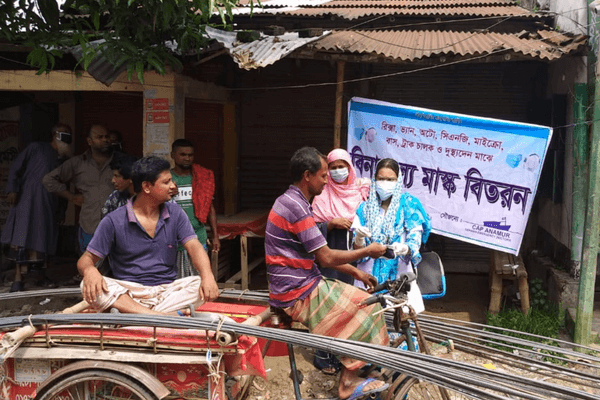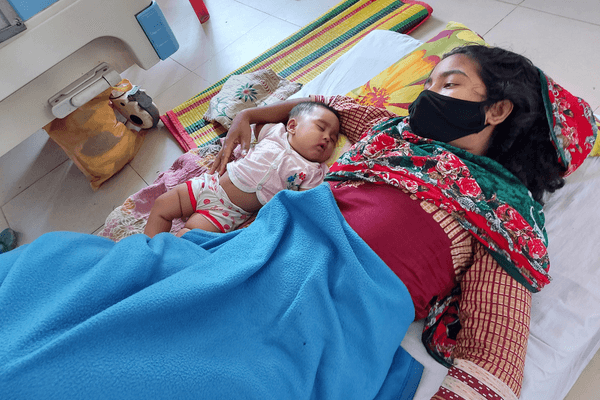Project reports
The Cap Anamur project reports describe the work of our teams on site, provide insights and depict current developments in the aid project.
Since the pandemic, the rate of absolute poverty in Bangladesh has increased significantly
The nationwide curfews particularly affected the many day laborers. Their earning opportunities dried up from that point on. Day laborers belong to the vulnerable population group that was already affected by absolute poverty in Bangladesh before the pandemic. With the pandemic, the number of people who subsequently slipped into extreme poverty increased significantly.
In addition, the closure of many medical facilities during the lockdown led to a deteriorating health care system. Since the state hardly pays for health care, people have to pay for treatments themselves. This is not possible for the majority of the population. Many corona infections could not be treated at all. Moreover, the poorest population groups were hardly able to provide themselves with appropriate hygiene measures. They were almost helplessly exposed to the virus.
That is why Cap Anamur distributed masks at the very beginning of the pandemic. In large-scale education campaigns, to protect against the COVID-19 virus, we informed the public on how they can protect themselves from the virus.
Medical care has only started to stabilize again in the last few months
Thus, since mid-2021, we have again been able to record increasing patient numbers at our cooperating healthcare facilities. Nearly 50% of all patients are women. This shows us that our approach of offering free medical care, especially to poor women, is the correct one.
Women and children, including girls, have suffered particularly from the Corona pandemic.
The school closures, which lasted for over a year, meant that children could no longer attend school. Instead, many had to support their families and contribute to their income through work. The number of young girls who were married off during this period has increased again in the last two years. In poor families, girls are more likely to be married off early in the hope that the husband will provide.
Our project coordinator Shabbir Ahmed explains the increase in the number of so-called child marriages as follows: The number of marriages of young girls has increased significantly in the last two years. Especially in rural areas, where people’s incomes have plummeted. Especially in rural areas, where people’s incomes have declined sharply, the closure of schools over a long period of time, the loss of jobs in families and the general economic situation in the country are among the causes of the increase in child marriages. Nationwide, the percentage has risen to about 30 – 35.“
This development in turn led to an increase in the proportion of very young pregnant women and mothers during the pandemic. In our area of operation, the number of young pregnant women also increased slightly, from 1145 in 2020 to 1286 in 2021.
We can prevent maternal mortality
The health care constraints of COVID-19 have also led to an increase in maternal mortality in Bangladesh, according to various studies. However, in our area of operation, the number of maternal deaths has not increased significantly because we have a health structure with a midwife nurse in each village. There are also a large number of trained obstetricians spread throughout the rural area.
This development also shows us that the care of women and especially pregnant women in Bangladesh is still vitally important. Because especially when women are affected by poverty, they usually cannot afford prenatal care and Cap Anamur offers this to women free of charge.





